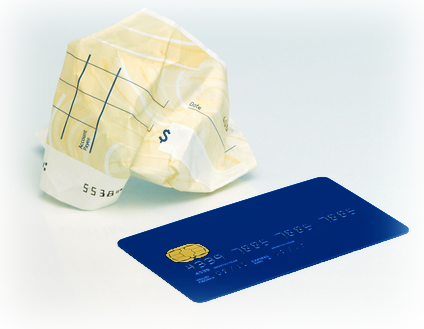Canada, like much of the world, has undergone dramatic change in its payment landscape over the past three decades. Perhaps the best illustration of this transformation is the displacement of cheques by electronic alternatives as the primary non-cash payment method. Increasingly, Canadians are using a variety of electronic payment mechanisms, from traditional debit and credit cards, to online payments, direct debits and emerging methods such as “tap and go” contactless payments. According to the Canadian Payments Association, cheques today only represent about 15% of the total payment items cleared daily through its systems, a drop from 98% in 1985. Looking forward, the Canadian payments landscape is set to undergo further dramatic changes as social media and mobile payment instruments continue to evolve and emerge.
These developments will have profound implications for Canadian consumers, businesses and public entities, resulting in important improvements in payment efficiencies and benefits for the national economy. How quickly we can realize these benefits, however, likely depend on how boldly the government is willing to act to rapidly accelerate the shift to new payments instruments. The reality is that although cheque volumes have greatly reduced, Canadians still write over 1 billion cheques annually, and their complete elimination is not likely without some sort of government mandate.
In fact, governments in many countries have taken a leadership role in effecting payment transformations. Many government programs in the US, for example, are transitioning to “digital currency”, whereby benefits are delivered in pre-paid cards rather than cheques to recipients of programs for child support, unemployment insurance and other disbursements. Netherlands has been virtually “cheque-free” for over ten years, and have identified as a priority the elimination of remaining paper-based payment items. South Africa is in the early analysis stage of determining the appropriateness of cheques and other paper-based payments and how best to promote electronic payments to retail customers. Even in Canada, the recent Task Force for the Payments System Review has recommended government leadership in a broad set of areas, including electronic invoicing and payments for government suppliers and benefit recipients.
The impacts of transitioning toward a chequeless society will be widespread. Consumers will have more convenient payment options, and can benefit from quicker and more secure access to funds. Existing and emerging payment providers will invest in safe, reliable and secure payment infrastructures. Banks will adopt new business models and will experience revenue and earnings shifts as cheque volumes fall, electronic payments rise and processing costs are reduced. New partnerships will be formed between players as new payment products are developed, and end-to-end solutions drive for ease-of-use, affordability, and high security. Small businesses, who continue to rely heavily on cheques, will achieve reduced payment handling costs, and productivity improvements through faster payments, enhanced recording-keeping capabilities, and reduced processing times and errors. Some of these cost savings may even result in some of the benefit being passed on to consumers in the form of lower prices.
So given all of these benefits, why does a move to a chequeless society need to be mandated? In short, because the transition away from cheques will result in near-term costs and significant changes to long-entrenched business processes, behaviours, preferences and habits. Investments will be required in new products, technologies, and systems. Small businesses have already indicated that additional payment systems costs are an area of significant concern. Solutions will need to address current shortcomings, such as the need for enhanced remittance information and common standards. And, during a transition period, banks, payment service providers and businesses may bear a significant cost of operating parallel systems and processes to support declining cheque processing as well as new payment capabilities.
Changes in the payments landscape not only require a mandated nudge to happen, but will of course require public policy responses to address issues of fees, privacy, security, increased transparency, and the need to balance the interest of diverse stakeholders. Considerations will need to be made for how the different players are impacted by transition timeframes, adoption rates, and the need to develop new infrastructure. With a wide range of diverse stakeholders, each with unique needs, interests and concerns, government leadership can act as a catalyst that brings together these varied players to find common ground and workable solutions.
Additional factors could also help paint a bright future for a chequeless society. As electronic payment instruments gain at the expense of cheques, organizations may embrace additional innovative services (such as e invoicing, for example) to accelerate the pace of change and drive additional cost savings and revenue generation opportunities. Driving innovation is certainly part of our current government’s agenda and its benefits could reverberate throughout the Canadian financial system creating further investment opportunities and growth.
If we were to make the final nudge towards a chequeless society, there would certainly be some growing pains, but ultimately most players, and society as a whole, would result in being significantly better off.

Optimus SBR Celebrates 6 Consecutive Wins as 2024 Best Workplaces™ in Professional Services
Our commitment to a people-first approach has been central to being recognized in 2024 for the sixth time as one of the Best Workplaces™ in Professional Services and the key to our overall success.

12 Best Practices to Increase Cross-Team Collaboration and Enhance Organizational Alignment
Enhancing cross-team collaboration drives innovation, optimizes resources, improves overall performance, and ensures every part of your organization works toward the same goals.

Enhancing Your Data Strategy for Success: The Power of Metadata
Metadata goes beyond just aiding in data retrieval. It ensures your data is secure, compliant and, most importantly, understood consistently by everyone in the organization.

Optimizing Language Translation Strategies: Beyond Compliance to Enhanced Operational Efficiency
The introduction of Quebec’s Bill 96 in Canada underscores the necessity for comprehensive translation strategies. Integrating machine translation technologies helps meet regulatory requirements while enhancing translation speed, cost efficiency, and operational effectiveness.

How to Manage Gen Z: 16 Strategies to Engage and Retain Young Talent
These practical strategies lead to a workplace that is better aligned with the values and expectations of Gen Z employees, ensuring that your efforts to attract and retain Gen Z talent are both successful and sustainable.

How to Measure the Success of Learning and Development: 12 Important Metrics to Evaluate
Quantifying the success of L&D training programs can be challenging. Learn about selecting and measuring the right metrics to determine whether your training efforts are truly making an impact.




